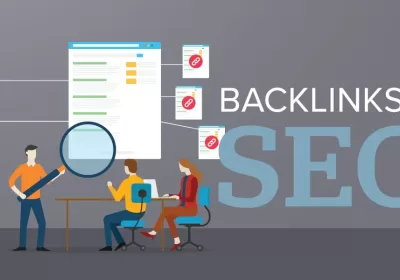White Hat vs. Black Hat Link Building: What You Need to Know

White Hat vs. Black Hat Link Building: What You Need to Know
In the dynamic world of SEO, understanding the distinction between “white hat” and “black hat” link building is fundamental for anyone involved in digital marketing or website management. These terms are more than mere labels; they encapsulate the ethical considerations, strategic differences, and potential impacts of the practices on your website’s long-term viability and search engine credibility. By exploring these concepts in depth, this guide aims to arm you with the knowledge to make informed decisions that align with both your business objectives and the ethical standards expected by search engines and users.
Defining White Hat and Black Hat Techniques
What is White Hat Link Building?
White hat link building encompasses strategies that align with search engine guidelines and focus on enhancing the user experience and providing value. These practices prioritize the creation of high-quality content that naturally attracts backlinks and fosters genuine user engagement. The goal of white hat strategies is to build a sustainable online presence that can withstand changes in search engine algorithms and continue to perform well over time. This approach not only aids in achieving higher search rankings but also in building trust and credibility with both users and search engines.
Read More: Search Engine Journal on White Hat SEO
What is Black Hat Link Building?
Black hat link building refers to techniques that attempt to manipulate search engine rankings through practices that violate search engine guidelines. These methods often involve deceptive tactics such as cloaking, participating in link schemes, and using automated programs to generate links. While these practices can provide quick gains in search visibility, they carry significant risks, including the potential for severe penalties such as being completely removed from search engine results pages. This approach is considered unethical and can damage a website’s reputation and trustworthiness in the long run.
Read More: Google Webmasters on Black Hat SEO
Risks and Rewards
The Risks of Black Hat Techniques
Black hat SEO practices are high-risk because they can lead to swift and severe consequences from search engines, including penalties that can drastically reduce your site’s visibility or even result in its removal from search engine indexes. Additionally, these tactics can harm your brand’s reputation, as users and other businesses may view your practices as untrustworthy or deceptive. The short-term gains from black hat SEO are often outweighed by the potential long-term damage to your brand’s online presence.
Read More: Google on Webspam and Penalties
The Rewards of White Hat Techniques
Engaging in white hat link building is beneficial for achieving durable, long-term results that contribute to a website’s steady growth in traffic and rankings. These techniques are designed to improve the site’s SEO through ethical means, ensuring compliance with search engine policies and enhancing the user experience. As a result, websites utilizing white hat techniques are less likely to suffer from search engine penalties and more likely to build lasting relationships with users and other reputable websites, which can lead to increased authority and market influence.
Read More: Moz on the Long-Term Benefits of White Hat SEO
Common Techniques in Each Category
White Hat Techniques to Consider
Effective white hat link building techniques include guest blogging on reputable sites, engaging in community outreach, and developing high-quality content that addresses the needs of your audience and encourages organic link building. These methods emphasize relevance, quality, and engagement, ensuring that links are earned in a manner that search engines favor and users appreciate. This focus on quality over quantity not only enhances your site’s profile but also its overall SEO performance.
Read More: Ahrefs on White Hat Link Building Techniques
Black Hat Techniques to Avoid
Black hat techniques to steer clear of include using automated tools to create links, buying links in bulk from questionable sources, and participating in link exchange schemes that offer no real value to users. These practices can quickly degrade your site’s reputation and result in punitive actions from search engines. By avoiding these tactics, you safeguard your site’s integrity and ensure a more stable and promising SEO future.
Read More: HubSpot on Black Hat SEO Techniques to Avoid
Making an Informed Decision
Evaluating Your Goals and Risk Tolerance
Deciding between white hat and black hat SEO involves a careful assessment of your long-term business goals and your willingness to engage in risky practices that could jeopardize your site’s reputation. Understanding the implications of each approach will help you align your SEO strategy with your broader business ethics and objectives, ensuring sustainable success.
Read More: Neil Patel on SEO Strategy and Risk
Consulting with SEO Professionals
Engaging with seasoned SEO professionals can provide you with insights and guidance tailored to your specific needs. These experts can help navigate the complexities of SEO and develop a strategy that maximizes your website’s potential while adhering to ethical standards. Their expertise can be invaluable in avoiding the pitfalls of black hat techniques and effectively implementing white hat practices.
Read More: SEMrush on Consulting with SEO Professionals
Conclusion
Understanding the differences between white hat and black hat link building is crucial for making informed SEO decisions that will impact your website’s future. These approaches offer starkly different risks and rewards, influencing not only your site’s search engine rankings but also its reputation and operational integrity. By opting for white hat strategies, you invest in the long-term health and success of your SEO efforts, ensuring that your online presence is both robust and respected.



